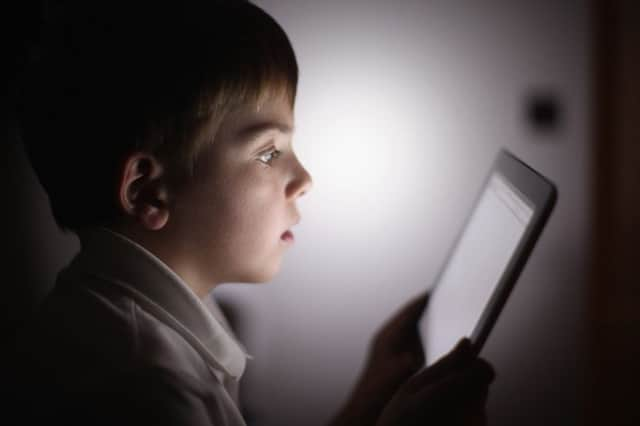Claire Gardner: Pull the plug on hi-tech bedrooms


If you want to get all poetic about the beauty of sleep, William Shakespeare once penned “Sleep, that knits up the ravell’d sleave of care” – which, I think, loosely means it’s a time when the body sorts itself out. And it does. Our body is busy repairing any damage inflicted during the day, while our brain is frantically downloading and processing information.
Studies constantly highlight the importance of a good night’s kip, with many reports suggesting that sleep-deprived people eat more junk food and run a higher risk of developing serious health problems, such as heart disease, heart attacks, strokes and high blood pressure.
Advertisement
Hide AdAdvertisement
Hide AdAnd any new parent will know just how important the “S” word becomes for both adults and baby when a little screamer comes into the world. Making sure newborns quickly establish a good sleeping pattern is probably one of the most important tasks faced by any mum or dad.
And as the babe-in-arms becomes a toddler, the need for sleep continues to ensure they thrive and grow.
Baths are given and books are read – and bargains are even struck sometimes to make sure the little terrors are tucked up in bed before the little hand points to eight.
However, once children hit a certain age, the whole issue of bedtime is thrown into chaos as the dreaded sleepover phenomenon starts.
For those unfamiliar with the term, it simply means one friend staying the night with another friend. But, in reality, it’s not as simple as all that.
Aside from the associated worries of your precious darling spending a whole 24 hours with another family (such as: are the parent’s decent folk? Will they be drinking heavily? Do their smoke detectors work?) there is the whole thorny issue of actually how much sleeping is done on a sleepover.
The first time my son asked for a friend to stay the night at the tender age of eight, I thought I would really push the fun-boat out and allow them to stay up to 9:30pm. They had watched a film and munched their way through half a sweet shop before I had ushered them upstairs and turned out the light.
There was, of course, a certain amount of giggling and rummaging around, but all was quiet by 10pm and I allowed myself a small moment of smug, imagining I was probably a rather cool and fun mum.
Advertisement
Hide AdAdvertisement
Hide AdHowever, after picking our boy wonder up from a sleepover months later, I casually asked what time they had gone to bed. “About 1am,” came the reply. “What, really, seriously?” I said, making no attempt to hide my horror.
Then it materialised that the parents had given up trying to get the boys to sleep at that time – and simply gone to bed at 1am, leaving them with an iPad for entertainment.
The rest of the day was a write-off for my exhausted offspring. Pale and irritable, he muddled through until collapsing into bed at night. And I, outraged and aghast at this unacceptable bedtime, asked around to find out if this was a normal experience. Shockingly, it appeared that it was and that many parents thought it OK for young children to be dancing around the house after midnight.
At the last asking, many mums said that around 1am was the time they thought sleepover buddies should be dozing off, despite the fact the kids were pale and ill the next day. However, it seems that the issue of late bedtimes is not just limited to Saturday night sleepovers.
A recent international education test found that children’s schoolwork was suffering in developed countries because so many were not getting enough sleep. On average, a child between the ages of five and 11 need between ten and 12 hours sleep a night, but many are only getting eight – and the reason? Experts say children are staying up too late because they are using mobile phones and computers in bedrooms rather than going to sleep.
Jane Ansell, who set up the charity Sleep Scotland, said lack of it affects a child’s growth and ability to remember facts and figures. So with all this evidence about how important shut-eye is, why are we still allowing kids to sleepwalk their way through school?
Surely we should be taking the computers and phones out of the bedrooms and insist on sensible bedtimes for Saturday night sleepovers. Wouldn’t that be a bedtime story with a happier ending?